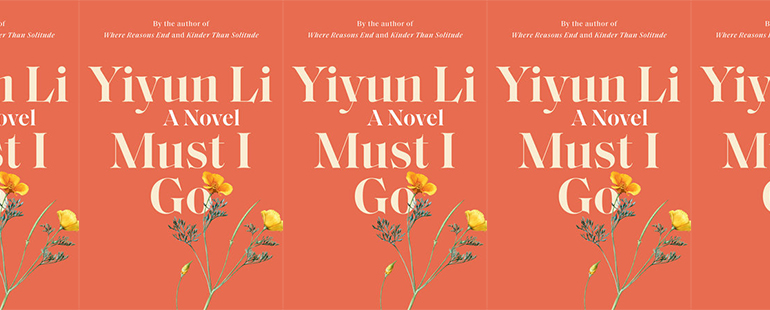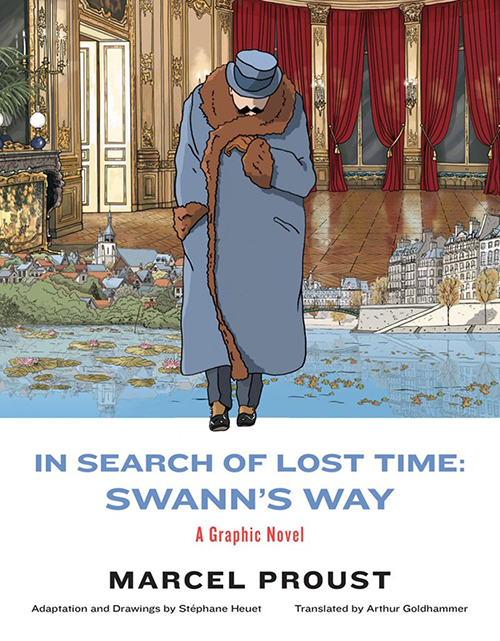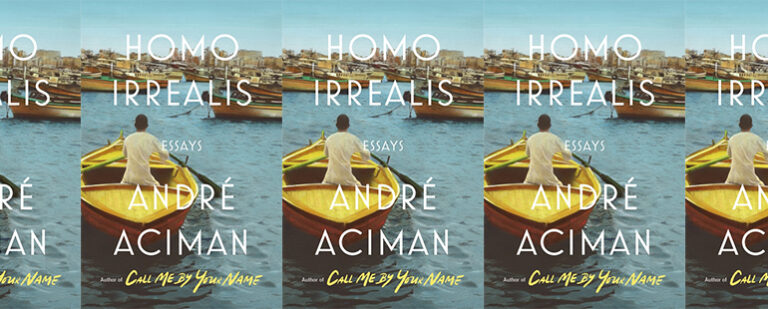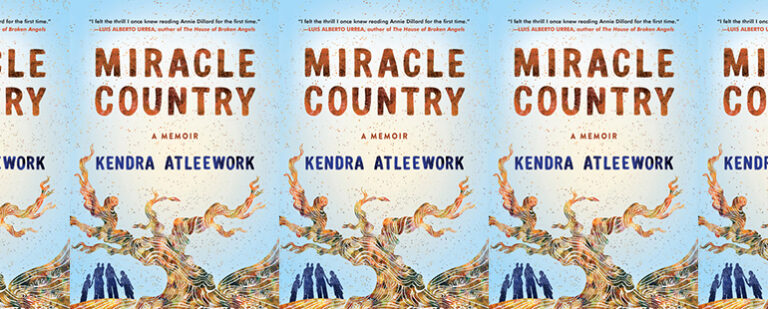Must I Go by Yiyun Li

Must I Go
Yiyun Li
Penguin Random House | July 28, 2020
In Must I Go, Yiyun Li’s elderly narrator, “Lilia Liska, from Benicia, California,” holds many conversations at once: with her deceased husbands, her children and grandchildren, her siblings and parents, her ex-lover, her ex-lover’s ex-lover, her ex-lover’s wife, and with the other occupants of the old folks’ home where she lives. In all her conversations, except for the one with her daughter, Lucy, who died by suicide months after the birth of her own daughter, Lilia has the final word.
Rather than a continuation of the more traditional storytelling of her earlier novels and story collections, Li’s fourth novel is better read as an outgrowth of two of her more experimental works: Dear Friend, From My Life I Write to You in Your Life, a dizzying memoir of Li’s relationships to literature and suicidality, and Where Reasons End, the light-footed and heavy-hearted, largely plotless novel she wrote after the death of her son by suicide, in which she references her writing of Must I Go. Though Must I Go contains the sketchy architecture of an intergenerational, historical novel, its rooms and stories remain more conceptual than actual. Characters act as analogs for one another based on shared status as widow and widower, orphan and bereaved parent. Husbands and wives are easily swapped. The defiant workings of memory are more important than memories themselves. Lives are annotated rather than recorded. Aphorisms, and the tendency of Li’s characters to offer universal truths, are frequently exposed by Lilia’s sharp pen as platitudinal wish-fulfillment.
Lucy, her death, and her push-pull relationship with life are meant to be the solid center of a story that keeps collapsing and expanding: “But I do know that you can’t take Lucy out of this story,” Lilia writes. Lucy has competition, though. Her story contends with her father’s, a writer named Roland Bouley, whom Lilia met and had an affair with at sixteen, and whose diaries provide the setting for the book’s latter two-thirds. This tension splits the book’s concerns, which never fully resolve, into two kinds: the relationships between (sometimes deceased) children and their (sometimes deceased) parents, and the compatibility of husbands and wives.
The question of what kind of man works best with what kind of woman, though obviously germane, remains tangential in the novel, as it’s not clearly addressed within the main triad of Lilia, Lucy, and Roland. Lilia wrangles with Roland’s philosophical and romantic whims, but to what end? Seemingly, her fixations on Roland both as one-time lover and as father to the child she’s tragically outlived would cast light on each other. A latent thought about mothers and wives—“That hardness in us makes us difficult mothers, but it makes us better women”—would go far toward strengthening that light, but instead is like a switch that never gets flipped. Still, Lilia, whose emotional toughness has allowed her to endure the suffering of her own existence along with that of Lucy’s, doesn’t seem to live in the dark. More likely, she lives in blinding light and doesn’t think everyone else could handle the full burst.
Even as the ground constantly shifts, certain historical places and events ground the novel. The first brief sections carry the reader between scenes in Lilia’s present and past. We’re introduced to Roland, his diaries, Lilia’s childhood, and the circumstances of their first meeting. We see the American West and its settler families; the Depression; World War II; a ranch visited by returning soldiers, sailors, and delegates looking for adventure and more carnal comforts; and the 1945 San Francisco Conference that would form the United Nations. This is the backdrop for Lucy’s conception and for another first meeting: Lilia and Gilbert’s, the husband (she’s had three) who suffers Lucy’s loss and with whom she raises their other children, including Lucy’s orphaned daughter. Gilbert, in his steadfast boringness, serves as both foil to Roland and complement to Roland’s similarly well-disposed (and indisposed) wife, Hetty. Lilia finds her own complement in Roland’s longtime lover, Sidelle Ogden, a mysteriously unattached figure who also suffers the loss of a child and who captures Lilia’s attention.
One can easily imagine another novel in which Lilia’s fascination and sympathy with Sidelle draw the story into a firmer shape. This, though, could be said of almost every dyad in Must I Go and so seems beyond the point. Rather, the range and interpolation of points, from psychological to geopolitical, makes a difficult and messy novel a thought-provoking, worthwhile read. Perhaps the proliferation of potential character parallels has something to do with the specter of world peace that haunts the men in the story. Li presents their optimism as foolhardy, sweet at best. Lilia, on the other hand, is a woman of the 21st-century—she has no faith in diplomacy, the same way she has no patience for mealtime nattering. It’s a stretch that credits the novel’s ambition and Li’s imaginative agility.
Just as we’re beginning to get a grip on the cast of characters, the past stiffens. For the duration of the book’s long, third section, we’re presented with pages from Roland’s diaries and Lilia’s commentary on them. Though this simplifies the narrative and demonstrates Lilia’s fixation on Roland, the solution may arrive too late. Or, it doesn’t arrive with enough passionate apology and charming excuse for its lateness. The diaries end up reading like an exercise: Why do the daily particulars of Roland’s young adult life matter to elderly Lilia? What, between the lines, is she striving to work out? Some playful ambiguity enlivens this set-up. At times, the diaries seem entirely fabricated by Lilia, who is (reluctantly) participating in a memoir workshop with her fellow old-timers.
But we also know that possession of the diaries was hard-won: Lilia diligently sought any published work by Roland Bouley throughout her adult life. And that, when they were finally published, he was dead, and the diaries were frustratingly edited by an overeager relation. By dedicating her annotated version of the diaries to Lucy’s daughter Katherine and Katherine’s daughter Iola as a “record” of her “small part” in his life—in which Lucy didn’t play a part “at all”—she attempts not to restore a picture, but to create a new one.
Through this framing, Li considers the act of writing as inheritance, and inheritance as both burdensome and liberating. Yet, Roland’s diaries and Lilia’s commentary are embodied and speech-like—full of sharp intakes of breath and heavy sighs. In his diary, Roland frequently addresses himself in the third person, staging conversations with himself (one clue that raises suspicion about Lilia’s tampering). On the final page, Lilia cedes that “Roland was right about one thing. When you start writing about yourself, it feels like you can go on living forever.” Freedom or folly? For once, Lilia doesn’t offer a corrective intervention. I’ll try: What sounds like comfort, especially to the ears of readers and writers, actually expresses the book’s—and Li’s—deep ambivalence between writing and its illusion of immortality and the unspeakable suffering of going on living. But Li’s wisdom is this: we don’t own the ambivalence. Death does. In the end, as Lilia tells Roland, we all must go.


